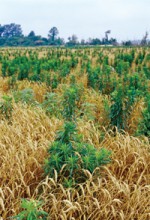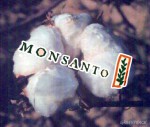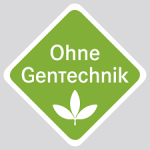News
2014-11-28 | permalink
Norwegian food authority stops approving antibiotic marker gene-containing GMOs in fish feed
GMWatch: 28 November 2014
Move comes amid concerns about rise in antibiotic-resistant infections
According to the Norwegian Biotechnology Advisory Board, the Norwegian Food Safety Authority has stopped approving (on a yearly basis) GMOs for use in fish feed that contain genes coding for antibiotic resistance. According to the Advisory Board, this applies to 8 out of 19 GMOs which the fish feed industry had previously been given permission to use since 2008.
An article on the website of the Norwegian Biotechnology Advisory Board reports:
"The fear is that genes in the GM feed that code for antibiotic resistance may be taken up by various bacteria in the soil in the country where the GMO is produced, in the feed production chain, or in the gut of the fish. Scientists know little about to what extent, or if, this happens with genes that are inserted via genetic modification, but few would deny that it could happen. If the genes first have entered into a bacterium [during the genetic engineering process], they may quickly spread further."
2014-11-28 | permalink
Oregon's 'Measure 92' GMO labeling: Oregon counties have until Dec. 12 to recount
 Vote Yes on Measure 92: We have the Right to Know What"s in our Food
Vote Yes on Measure 92: We have the Right to Know What"s in our Food
Oregon's county clerks have been officially ordered to conduct a hand recount of votes for and against GMO labeling Measure 92 by December 12.
Secretary of State Kate Brown announced late Tuesday that, as expected, the certified results of Measure 92 are so close they require an automatic hand recount.
County elections officials now need to take up that task, with the state paying the cost.
 Measure 92 GMO recount: Oregon counties have until Dec. 12 to recheck votes | OregonLive.com
Measure 92 GMO recount: Oregon counties have until Dec. 12 to recheck votes | OregonLive.com A whisker from victory! Oregon GMO vote goes to a recount - The Ecologist
A whisker from victory! Oregon GMO vote goes to a recount - The Ecologist Vote tally too close, recount ordered on Oregon GMO labeling | Reuters
Vote tally too close, recount ordered on Oregon GMO labeling | Reuters Measure 92: Dec 12 deadline for Oregon GMO labeling vote recount
Measure 92: Dec 12 deadline for Oregon GMO labeling vote recount Yes on 92 campaign: Recount! | Oregon Right to Know
Yes on 92 campaign: Recount! | Oregon Right to Know
2014-11-26 | permalink
Problems with glyphosate-resistant weed in GMO cultivated countries
 Glyphosate resistance threatens Roundup hegemony - Nature Biotechnology
Glyphosate resistance threatens Roundup hegemony - Nature Biotechnology
Argentina confirmed that Digitaria insularis is resistant to glyphosate and has invaded crops in the Northwest and Northeast regions of the country, and in the south of the Santa Fe province. This weed was previously classified on an yellow alert for suspected resistance to glyphosate.
The dose-response test to verify resistance was done by the Center of Herbicides Assessment of the Agrobiotechnology Institute of Rosario. The resistance index was 11.8, which means that a dose of 12 times higher would be required to control the Digitaria insularis comparing to non-resistant ones.
Both Paraguay and Brazil already had identified the Digitaria insularis biotypes resistant to glyphosate in 2005 and 2008, respectively. Currently, this specie is one of the major problems in both countries, and spreads rapidly in Brazil.
 New glyphosate-resistant weed is detected in Argentina - AgroPages.com
New glyphosate-resistant weed is detected in Argentina - AgroPages.com Confirmed and suspect resistant weeds growing - Agri-View
Confirmed and suspect resistant weeds growing - Agri-View Farmers' war on weeds threatens neighboring vineyards - Houston Chronicle
Farmers' war on weeds threatens neighboring vineyards - Houston Chronicle Impacts of genetically engineered crops on pesticide use in the U.S. -- the first sixteen years
Impacts of genetically engineered crops on pesticide use in the U.S. -- the first sixteen years Field of weeds: Could agriculture crisis crop up from herbicide resistance? | PBS NewsHour
Field of weeds: Could agriculture crisis crop up from herbicide resistance? | PBS NewsHour
2014-11-24 | permalink
Rising suicide rate for Indian farmers blamed on GMO seeds
 Corporate cotton
Corporate cotton
Monsanto, which has just paid out $2.4 million to US farmers, settling one of many lawsuits it’s been involved in worldwide, is also facing accusations that its seeds are to blame for a spike in suicides by India farmers.
The accusations have not transformed into legal action so far, but criticism of Monsanto has been mounting, blaming the giant company for contributing to over 290,000 suicides by Indian farmers over the last 20 years.
The author of a documentary on Indian farmers’ suicides, Alakananda Nag, who has interviewed dozens of the relatives of those who have taken their lives, links the rise in the suicide rate to the use of GMO seeds. She believes small farms are particularly vulnerable.
“The large farms certainly have the funds to support themselves and get on, but the smaller ones are really ones that suffer the most,” Nag told RT. “Monsanto definitely has a very big hand to play. A few years ago it was illegal to grow GMO crops in India. It’s not like the suicide did not exist back then. It did, but I think there was definitely a sharp rise in the [suicide] numbers once [GMOs] were allowed.”
The Center for Human Rights and Global Justice has estimated that in 2009 alone 17,638 Indian farmers committed suicide, or one suicide every 30 minutes.
Farmers’ widows, such as Savithri Devi from India’s southern state of Telangana, explain just how tough things can get for those trying to grow enough crops to earn a living.
“[My husband] initially put a bore well, then started cultivation, but we didn’t get enough water from the bore well and there were no rains, too,” Devi told RT. “So he again tried to deepen the bore well, but it didn’t work. So he borrowed money. His depression eventually led him to committing suicide. He drank pesticide and died.”
The legalization of GMO in 2002 has only added to the stress experienced by Indian farmers, according to the head of the Council for Responsible Genetics, Sheldon Krimsky.
 Rising suicide rate for Indian farmers blamed on GMO seeds
Rising suicide rate for Indian farmers blamed on GMO seeds Farmer Suicides in India | CHRGJ
Farmer Suicides in India | CHRGJ Monsanto BT Cotton and Indian Farmers - Vandana Shiva - How Monsanto Destroys Farming - YouTube
Monsanto BT Cotton and Indian Farmers - Vandana Shiva - How Monsanto Destroys Farming - YouTube From Seeds of Suicide to Seeds of Hope: Why Are Indian Farmers Committing Suicide and How Can We Stop This Tragedy? | Vandana Shiva
From Seeds of Suicide to Seeds of Hope: Why Are Indian Farmers Committing Suicide and How Can We Stop This Tragedy? | Vandana Shiva Council for Responsible Genetics: GeneWatchVolume 26 Issue 1 Genetics in Agriculture
Council for Responsible Genetics: GeneWatchVolume 26 Issue 1 Genetics in Agriculture Picking Cotton: The choice between organic and genetically-engineered cotton for farmers in South India | Greenpeace India
Picking Cotton: The choice between organic and genetically-engineered cotton for farmers in South India | Greenpeace India
2014-11-21 | permalink
Success Stories: Non-GMO Project in USA and the Swiss Soy Network
 ohne Gentechnik
ohne Gentechnik
The Latest News from ProTerra and the Industry
Non-GMO Project Gains Importance In the USA
Non GMO project Concerns about genetically modified organisms in food and agriculture is often treated as a specific concern to consumers in European markets only. However, reviewing the on-going negotiations between the US and the EU, it is interesting to see the rising number of concerned American consumers who are asking for GM-labelling and are involved in the Non-GMO project. The non-GMO Project is organised as a not-profit organisation, offering third party verification and labelling of Non-GMO products. Verification of non-GMO Products is based on a detailed Standard, and is similar to the Standard of VLOG in Germany, and ARGE Gentechnik-frei in Austria.
(.....)
Success Story – The Swiss Soy Network
Switzerland plays a minor role in the global soy business; Swiss soybean production counts for only 0.001 percent of global harvest and Switzerland buys around 0.4% of the traded soymeal worldwide. However, the country has contributed considerably to alleviate the negative consequences of soy production.
The success factors for this result are:
- Purchasing of responsible Non-GMO soy needs a long-term commitment between all players in the value chain. Long lasting relationships, contracts, policies and strategies for sustainability are a pre-condition for the functioning of the network to achieve common goals.
- The network follows a pragmatic approach based on existing Standards such as Bio Suisse, ProTerra, RTRS Non-GMO and Danube Soy.
- Because no separated flow of goods was needed and the import of responsible soy had risen slowly and continuously year by year, the consumers never faced a price increase for Swiss meat, egg and milk.
 The Latest News from ProTerra and the Industry
The Latest News from ProTerra and the Industry Non-GMO Project Standard | The Non-GMO Project
Non-GMO Project Standard | The Non-GMO Project Soy Network Switzerland
Soy Network Switzerland CERT ID Non-GMO standard
CERT ID Non-GMO standard Danube Soya 2/2014
Danube Soya 2/2014 VLOG - Association Food without Genetic Engineering
VLOG - Association Food without Genetic Engineering Certification schemes (RTRS and ProTerra) in Brazilian soy
Certification schemes (RTRS and ProTerra) in Brazilian soy ProTerra Foundation is revising its Standard to make it stronger and simpler, for a greater impact
ProTerra Foundation is revising its Standard to make it stronger and simpler, for a greater impact
